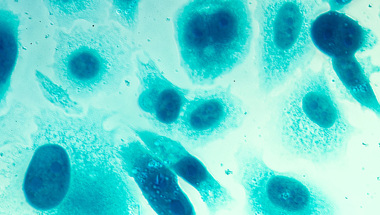
Can adding chemotherapy to hormone therapy help men with advanced cancer?

Grant information
Reference: MA-TIA24-005
Researchers and Institutions:
Professor Simon Crabb, University of Southampton
Professor Gerhardt Attard, University College London
Professor Rob Jones, University of Glasgow
Dr Sarah Chamberlain, University of Southampton
Award: £1,876,721
What you need to know
- Some men with advanced prostate cancer don’t respond for as long as we would like to hormone therapy alone.
- Adding chemotherapy can help, but the treatment comes with extra side effects, so doctors normally wait until the cancer starts growing again.
- This trial is testing whether adding this chemotherapy sooner can help this group of men live longer, without significantly harming their quality of life.
Why are we funding this research?
A key challenge in treating advanced prostate cancer is knowing when to step up treatment. Most men with this type of cancer start on hormone therapy, and doctors usually wait until the cancer worsens before adding chemotherapy – to delay the side effects that come with it.
But this trial, called INTENSIFY, is testing whether giving chemotherapy earlier, while the cancer is still responding to hormone therapy, could help men with more aggressive cancers live longer.
What makes this study different is that it focuses on a group of men who are often overlooked: men whose PSA levels suggest they’re at risk of their cancer starting to spread again relatively soon, even though they are currently responding to treatment. By targeting these men sooner, the researchers hope to extend their lives without adding unnecessary side effects.
If successful, the trial could lead to a new, more personalised approach to treatment, using a simple, existing blood test to guide decisions.
What will the researchers do?
The INTENSIFY clinical trial will recruit men with advanced cancer who’ve already been on hormone treatment for six months and whose PSA hasn’t yet dropped below a certain level (0.2 ng/ml). This is because a higher PSA at this stage suggests the cancer might not stay under control for as long.
Once enrolled, each man will be randomly assigned to one of two groups. One group will carry on with hormone treatment alone, which is the standard approach. The other group will continue hormone therapy but also receive a chemotherapy drug called docetaxel, given through a drip every three weeks for up to six sessions.
The researchers will then follow up with everyone for at least two years. They’ll track how long each man lives, how quickly his cancer progresses, and how the treatments affect his quality of life. They’ll also monitor any side effects the men experience, and look at how cost-effective the treatments are for the NHS.
In addition, the team will see whether a new type of genetic test, called Decipher Prostate, can help predict which men are most likely to benefit from early chemotherapy. If it works, it could help doctors personalise treatment even further in future.
Most men with advanced prostate cancer will respond to initial hormonal therapy. But we can predict that some will have a less favourable duration of response with a simple PSA blood test. This trial will determine whether these men would benefit from early treatment intensification.
How will this benefit men?
This research could lead to a more personalised and effective way of treating men with advanced prostate cancer.
If it works, doctors could use a simple blood test to spot who might benefit from more intensive treatment sooner. That could give these men a better chance of keeping their cancer under control for longer, while they’re still well enough to handle chemotherapy.
If successful, this approach could become a new standard of care for thousands of men in the UK and worldwide.
Help us fund more research like this
Your donation helps us fund lifesaving research into better treatments for prostate cancer.





